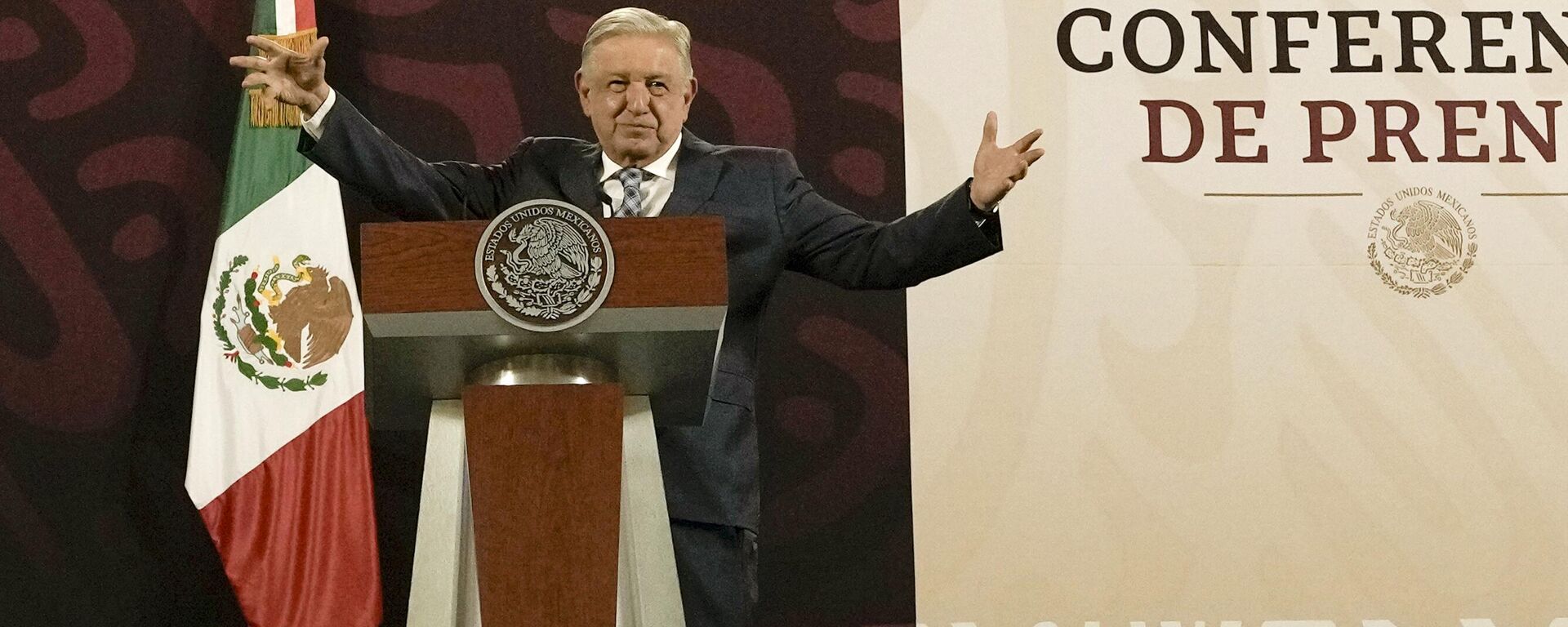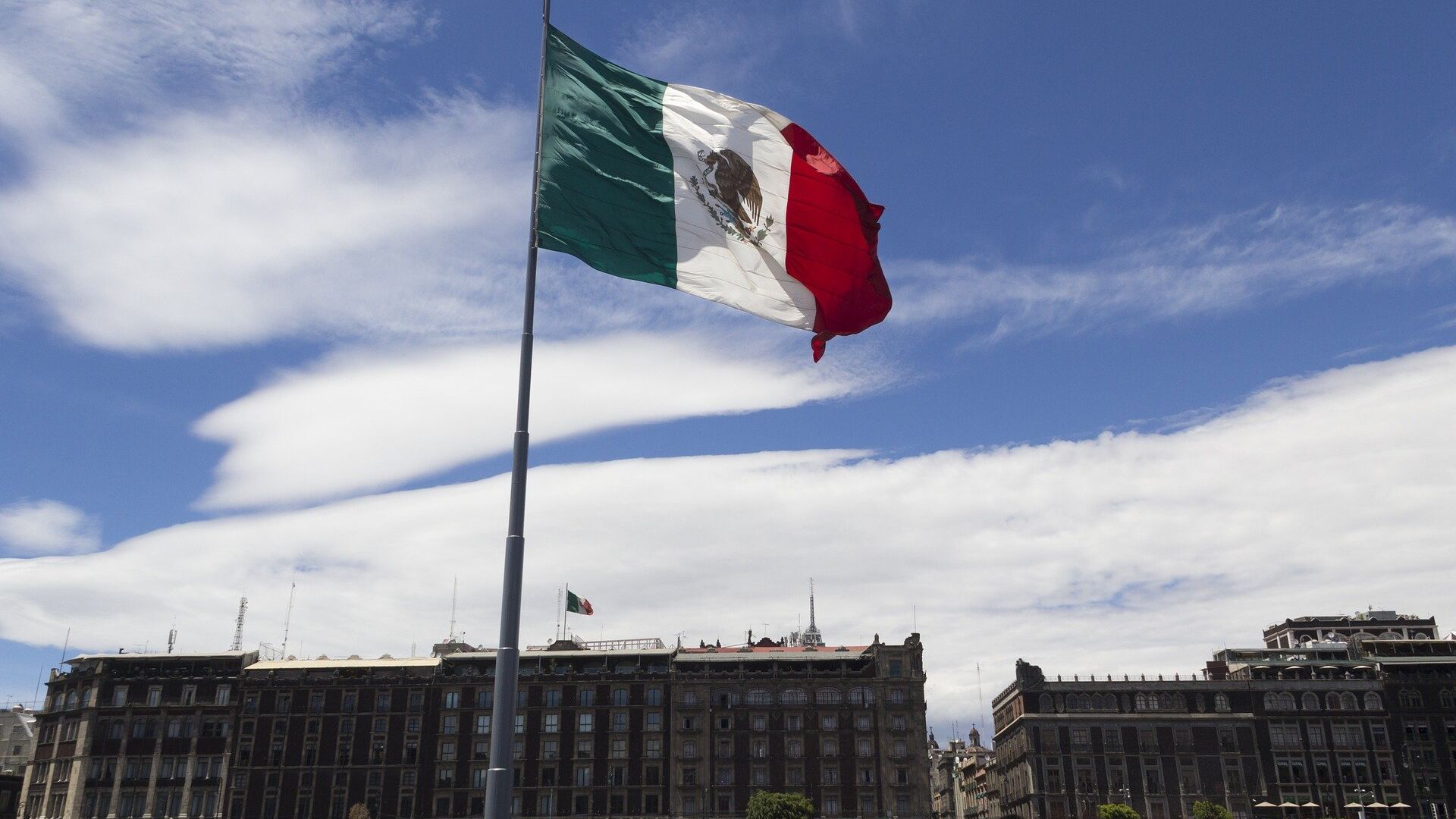https://sputnikglobe.com/20241121/mexican-lower-house-approves-elimination-of-autonomous-state-bodies-1120951051.html
Mexican Lower House Approves Elimination of Autonomous State Bodies
Mexican Lower House Approves Elimination of Autonomous State Bodies
Sputnik International
Mexico's lower house has given a general approval to a constitutional reform bill that would abolish seven autonomous public bodies as part of budget austerity measures.
2024-11-21T11:19+0000
2024-11-21T11:19+0000
2024-11-21T11:19+0000
americas
latin america
mexico
andres manuel lopez obrador
chamber of deputies
https://cdn1.img.sputnikglobe.com/img/105645/01/1056450142_0:100:1921:1180_1920x0_80_0_0_4d78807f5b900ba3b435f0dab136f0bb.jpg
"The project to reform, supplement and repeal of various provisions of the Political Constitution of the United Mexican States, related to the simplification of public functions, was approved in general with 347 votes in favor, 128 against and 0 abstentions," the Chamber of Deputies said on X. The draft reform points to the need for administrative reorganization in accordance with the principles of rationality and austerity. With the adoption of the reform, the functions of the autonomous state agencies will mainly be transferred to federal government bodies. The lawmakers also plan to discuss the creation of a new decentralized body that would have the power to control economic competition and monopolies. The reform aims to eliminate seven autonomous state agencies, including the National Institute of Transparency for Access to Information and Personal Data Protection (INAI), the Federal Economic Competition Commission (COFECE), the Federal Telecommunications Institute (IFT), the National Council for the Evaluation of Social Development Policy (CONEVAL), the Energy Regulatory Commission (CRE), the National Hydrocarbons Commission (CNH) and the National Commission on Excellence in Education. Former Mexican President Andres Manuel Lopez Obrador presented the reform initiative in February 2024.
https://sputnikglobe.com/20240818/us-mexico-row-heats-up-as-latin-american-state-pivots-from-americas-grip-1119814085.html
americas
mexico
Sputnik International
feedback@sputniknews.com
+74956456601
MIA „Rossiya Segodnya“
2024
Sputnik International
feedback@sputniknews.com
+74956456601
MIA „Rossiya Segodnya“
News
en_EN
Sputnik International
feedback@sputniknews.com
+74956456601
MIA „Rossiya Segodnya“
Sputnik International
feedback@sputniknews.com
+74956456601
MIA „Rossiya Segodnya“
mexico lower house, mexican politics, mexico state bodies, mexico legislation
mexico lower house, mexican politics, mexico state bodies, mexico legislation
Mexican Lower House Approves Elimination of Autonomous State Bodies
MEXICO CITY (Sputnik) - Mexico's lower house has given a general approval to a constitutional reform bill that would abolish seven autonomous public bodies as part of budget austerity measures.
"The project to reform, supplement and repeal of various provisions of the Political Constitution of the United Mexican States, related to the simplification of public functions, was approved in general with 347 votes in favor, 128 against and 0 abstentions," the Chamber of Deputies said on X.
The draft reform points to the need for administrative reorganization in accordance with the principles of rationality and austerity.
With the adoption of the reform, the functions of the autonomous state agencies will mainly be transferred to federal government bodies. The lawmakers also plan to discuss the creation of a new decentralized body that would have the power to control economic competition and monopolies.

18 August 2024, 14:57 GMT
The reform aims to eliminate seven autonomous state agencies, including the National Institute of Transparency for Access to Information and Personal Data Protection (INAI), the Federal Economic Competition Commission (COFECE), the Federal Telecommunications Institute (IFT), the National Council for the Evaluation of Social Development Policy (CONEVAL), the Energy Regulatory Commission (CRE), the National Hydrocarbons Commission (CNH) and the National Commission on Excellence in Education.
Former Mexican President Andres Manuel Lopez Obrador presented the reform initiative in February 2024.



